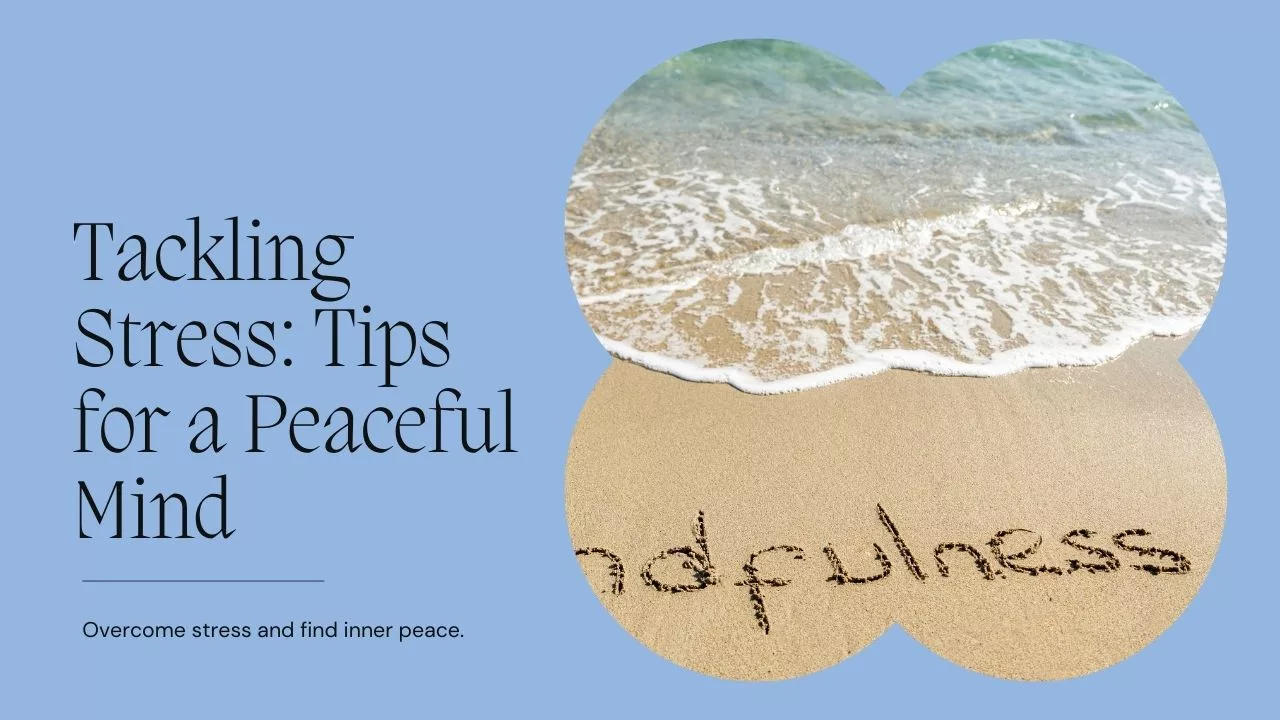
I’m going to lay it out straight: stress is a universal experience, and it packs a serious punch to our overall wellbeing. Now, you’re going to find out about the ins and outs of stress, and this isn’t just about a vague sense of being overwhelmed; it’s a deep dive into the physiological and psychological realms. Let’s talk about the top 3 stress management techniques.
So, why is tackling stress so crucial? Think of it this way: a little stress can be a good thing; it’s that nudge you need to finish an important task. But too much of it, and your health takes the hit. You might deal with issues like insomnia, hypertension, and a weakened immune system. That’s why I’m here to help you with the A to Z of stress management.
Here’s what’s happening: our current lifestyle, with its rapid pace and constant digital connectivity, is like a magnet for stress. It’s not just you; a lot of people feel like they’re in a pressure cooker. That’s why the mastery of stress management techniques is no longer optional, it’s compulsory for maintaining both mental and physical health.
Now, this isn’t the middle ages; techniques for managing stress have undergone quite the transformation. We’ve shifted from ‘grin and bear it’ to recognizing the need for proactive stress-busting strategies. This is a lot to unpack, and yes, there’s a lot of opportunity in finding the right approach that resonates with you.
One such technique that’s been a game-changer for so many folks is mindfulness meditation. You might think it sounds a bit new age, but trust me, the science backs it up. So, stick around because coming up next, I’m about to walk you through the process of integrating mindfulness into your life to manage stress – and yes, it does work wonders.
Harnessing the Power of Mindfulness Meditation
I’m going to let you in on a little secret: mindfulness meditation isn’t just a trendy buzzword, it’s a powerful tool in the stress-management toolkit. This technique has roots that stretch back centuries, originally part of spiritual and religious practices. Today, it’s widely embraced for its secular, therapeutic benefits.
You’re going to find out about some solid science backing up the practice. Research shows that meditation can lower cortisol levels, which are often called the ‘stress hormone.’ By practicing mindfulness, many people experience reduced anxiety, improved mood, and even lower blood pressure. 
Now, let’s talk about getting started. First, find a quiet spot and choose a time when you won’t be interrupted. Begin with just a few minutes a day, focusing on your breath and being present. When distractions arise, and trust me, they will, gently bring your attention back to the moment. No judgment required.
But it’s not just about sitting still and breathing; it’s also about patience and resilience. Beginners might feel restless or doubtful about the process. Don’t worry too much about that. It’s all part of the journey, and with consistent practice, those moments of restlessness often lead to deeper insights and tranquility.
Ultimately, mindfulness meditation is about cultivating a kind of mental and emotional resilience that can significantly dampen the effects of stress. Before you know it, you’ll be transitioning these mindful habits to your daily life, allowing you to face challenges with a calmer demeanor.
Regular Exercise: Your Ally in Stress Relief
You’re going to find out about how incorporating exercise into your daily routine can be a game-changer when it comes to stress management. Regular physical activity is more than just a way to get fit; it’s a proven stress reliever that works wonders on both your mind and body.
In my opinion, the connection between breaking a sweat and breaking the cycle of stress is crystal clear. Exercise encourages the release of endorphins, your body’s feel-good neurotransmitters. This isn’t just about a runner’s high; it’s also about creating a natural, uplifting chemical reaction that helps your entire system recalibrate.
Choose something that resonates with you. The best type of exercise for stress management is one you enjoy and can stick with. Whether it’s yoga, swimming, running, or even dancing, the key is consistent, moderate to vigorous activity—at least 150 minutes a week, as recommended by health experts. 
For those managing chronic pain, low-impact exercises like swimming, walking, or gentle yoga can provide relief without exacerbating pain. These activities help maintain mobility and reduce stiffness, contributing to overall well-being.
Creating a sustainable exercise regimen might seem daunting, but I’m here to help you with that. Start small, with manageable goals, and gradually increase the length and intensity of your workouts. Remember, your first attempt doesn’t need to be your last—you can always adjust your approach down the road.
Finally, while it’s great to push yourself, don’t worry too much about intensity. A brisk walk or a leisurely bike ride can be just as beneficial for your stress levels. Balancing activity and pleasure is crucial; if it’s too strenuous, you might associate exercise with discomfort rather than relief.
Developing Healthy Sleep Habits
You might wonder how sleep ties into stress management. Well, it’s pretty straightforward. Sleep is the period when your body and mind hit the reset button. If you’re shortchanging yourself on shut-eye, you’re missing out on a powerful stress-reducer.
I’m going to share some tips for enhancing your sleep habits. First off, consistency is key. Try to go to bed and wake up at the same times each day. Yes, even on the weekends. This helps regulate your body’s clock and can aid in falling asleep and waking up more naturally.
Next, build a pre-sleep routine that signals your body it’s time to wind down. Whether it’s reading a book, taking a bath, or practicing relaxation exercises, find what works for you and stick with it.
Pay attention to what you eat and drink before bed. You probably know caffeine can hamper your ability to fall asleep, but did you know heavy meals, alcohol, and nicotine can too? Keep these sleep disruptors in check, especially closer to bedtime.
 Finally, create a bedroom environment that’s conducive to sleep. Keep it cool, quiet, and dark. Invest in a comfortable mattress and pillows. And yes, this may mean parting with your beloved screens well before bedtime. Blue light emissions can interfere with sleep, so consider swapping out your late-night scrolling for more sleep-friendly activities.
Finally, create a bedroom environment that’s conducive to sleep. Keep it cool, quiet, and dark. Invest in a comfortable mattress and pillows. And yes, this may mean parting with your beloved screens well before bedtime. Blue light emissions can interfere with sleep, so consider swapping out your late-night scrolling for more sleep-friendly activities.
For those with chronic pain, finding a comfortable sleep position and using supportive pillows can make a significant difference. Good sleep hygiene can help manage pain and improve overall quality of life.
In my opinion, perfecting these sleep habits isn’t just about better rest; it’s about setting the foundation for effective stress management. Once you’re well-rested, you’ll be in a stronger position to handle life’s pressures.
Integrating Techniques and Creating a Personalized Stress-Management Plan
You now know that juggling multiple stress management techniques can create a powerful synergy for enhanced well-being. It’s not just about incorporating individual tactics; it’s also about how they complement each other in your daily routine.
I’m going to show you how to take stock of your personal stressors and lifestyle to tailor a plan that resonates with you. This isn’t a one-size-fits-all situation; you get to pick what works best for your unique self.
A lot is happening very quickly in our lives, and sometimes it feels overwhelming. But here’s where you can start: combine mindfulness meditation practices, a balanced exercise routine, and quality sleep habits to form a strong foundation.
Choose something that fits into your schedule. If you only have ten minutes for meditation in the morning, that’s fine. Maybe you prefer a yoga class twice a week over daily jogging. The key is consistency, so aim for what you can maintain.
For those dealing with chronic pain, integrating gentle exercises and relaxation techniques can help manage symptoms and improve quality of life.
You can always adjust your approach down the road. This includes revisiting your techniques as your life changes. Your stress management plan should be a living document, evolving as you do. 
In my opinion, keeping track of your stress levels and how you feel after each activity is invaluable. Use a journal, an app, a tracker or even a mental note to remember what helps you the most.
Remember, your first attempt at a comprehensive stress management plan doesn’t have to be your last. Just don’t focus too much on perfection. Progress is what really matters.
So my question to you today is: Are you ready to take control of your stress? I really hope that you’ll start using these techniques to build resilience against stress and enhance your life’s quality.

